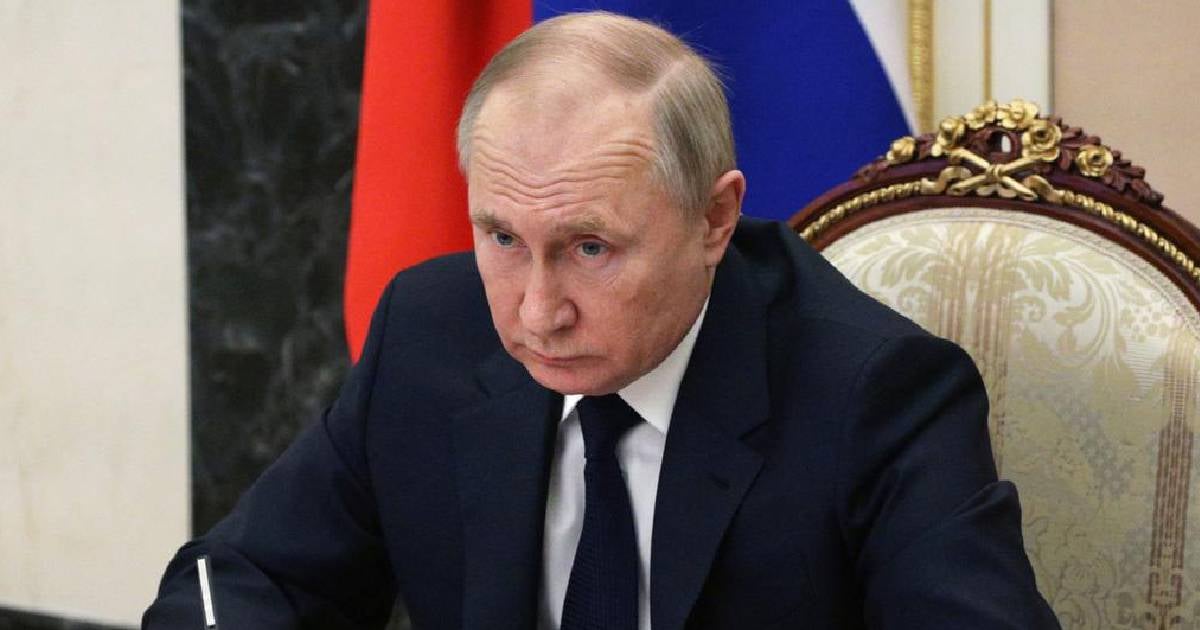Russian President Vladimir Putin signed a decree on Monday simplifying and expediting residency permits for foreigners seeking political asylum due to opposing ideological stances in their home countries, provided they share the "traditional spiritual and moral values" of the Eurasian nation.
The President approved Presidential Decree N702, which will come into effect on September 1. The decree specifically addresses those wishing to relocate to Russia citing "rejection of the policies implemented by these states that impose destructive neoliberal ideological guidelines and contradict Russia's traditional spiritual and moral values," according to Europa Press.
As part of the process, the Ministry of Foreign Affairs will issue a single-entry visa valid for three months for those wishing to move for the aforementioned reasons. Unlike other cases such as marriage or employment contracts, beneficiaries can obtain residency without having to pass language, history, or Russian legislation tests.
Implications for Cuban Citizens
This new regulation raises an important question: Can Cubans take advantage of the measure? Although it is designed to support those rejecting a "destructive neoliberal ideological agenda," the situation for citizens of the island remains uncertain.
Cuba, being within Moscow's sphere of influence, is not explicitly mentioned in the decree. However, the Russian government will draft a list of countries that, in its view, have policies contrary to Russian values. Thus, it remains to be seen whether Cubans will qualify.
According to Diario de Cuba, Russian official Vladimir Shkunov, who manages the Facebook group "Russia for Cubans," stated that starting September 1, 2024, those in Cuba interested in applying for residency must contact the Russian Consulate General in Havana with a request for a private three-month visa.
"Upon arrival in Russia, Cubans present documents to obtain a residency permit at the Russian Migration Service office. You must have a certificate showing no criminal record in Cuba (valid in Russia for six months)," added Shkunov.
It is noteworthy that Cubans have been traveling to Russia for years, whether to emigrate, shop, or work. They may also present documents indicating their rejection of policies deemed incompatible with Russian values.
On Thursday, August 11, Putin signed a law outlining the obligations foreigners must meet to reside in Russia, which could affect Cubans already in the country. The document, published by the State's legal information portal, mandates the creation of a monitored persons registry to be used by the Ministry of the Interior and the Government and specifies mechanisms for expelling foreigners who violate local laws.
These measures align with expulsions that occurred following the March 22 attack at a theater near Moscow, which resulted in at least 150 deaths. On that occasion, President Putin called for combating illegal immigration, asserting that Russia has paid "a high price, and the analysis of the situation must be extremely objective and professional."
FAQs on Putin's New Residency Decree
Here are some frequently asked questions regarding Putin's new residency decree and its implications, especially for Cuban citizens.
Who is eligible for the new residency permits under Putin's decree?
Foreigners seeking political asylum who share Russia's traditional spiritual and moral values and reject neoliberal ideological guidelines in their home countries are eligible.
Can Cuban citizens apply for these residency permits?
While the decree does not explicitly mention Cuba, Cuban citizens may apply if they can demonstrate rejection of policies incompatible with Russian values.
What documents do Cubans need to apply for residency in Russia?
Cubans must present a certificate showing no criminal record in Cuba, valid for six months in Russia, and other relevant documents to the Russian Migration Service upon arrival.
When will the new residency regulations come into effect?
The new regulations will come into effect on September 1, 2024, according to the decree signed by President Putin.
